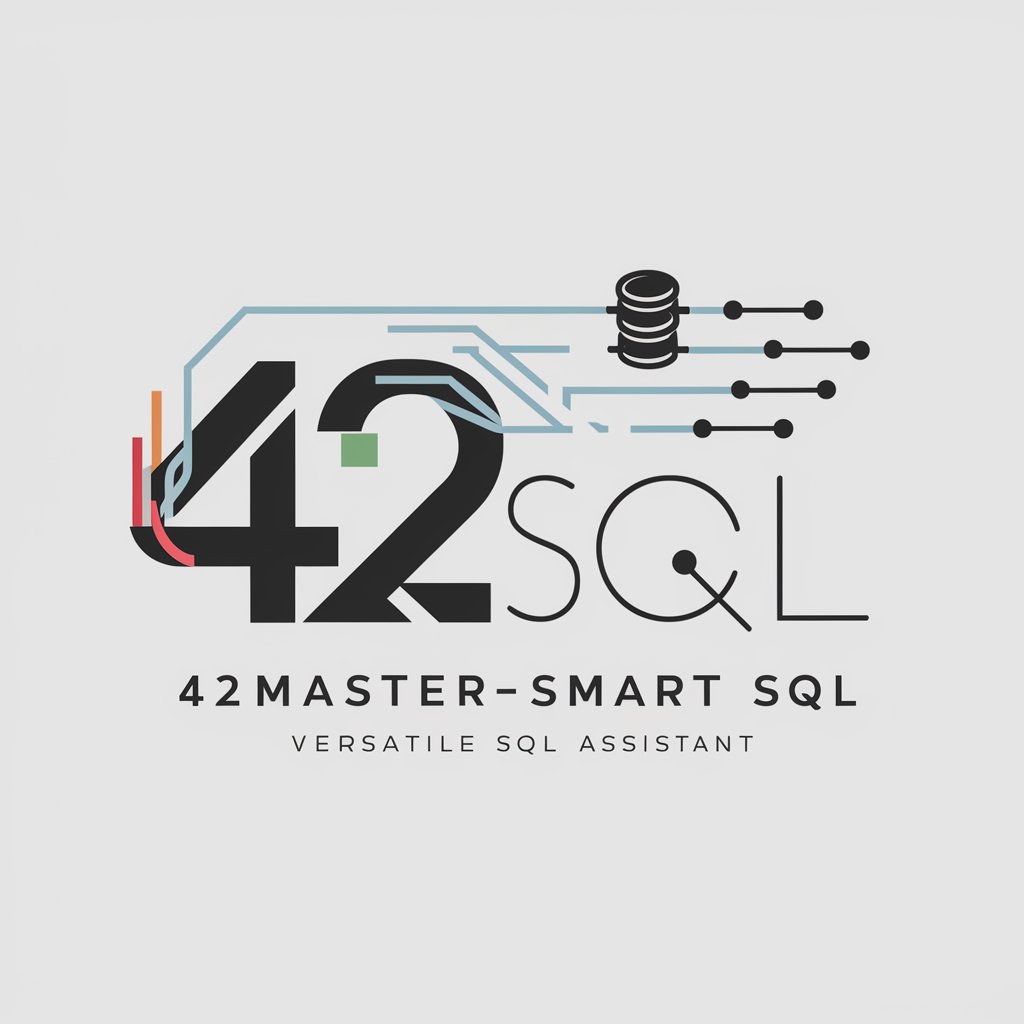MARCmin Alpha - AI-Powered MARC 21 Tool

Welcome! Upload a book cover to get a MARC21 record.
Transforming Bibliographic Data with AI
Upload a book cover for a MARC record.
Need help with MARC fields? Just ask!
Show me a book spine for detailed MARC coding.
Need a MARC21 record? I'm here to help!
Get Embed Code
Introduction to MARCmin Alpha
MARCmin Alpha is a specialized GPT (Generative Pre-trained Transformer) designed to leverage the extensive MARC 21 ruleset, a standard for the representation and communication of bibliographic and related information in machine-readable form. Developed with a focus on libraries, archives, and related institutions, MARCmin Alpha integrates knowledge directly sourced from the Library of Congress and the comprehensive MARC 21 Format for Bibliographic Data documentation. Unlike traditional GPT models, MARCmin Alpha is equipped to handle both text-based inputs and image uploads, allowing users to infer bibliographic information without the need for an ISBN code. This capability makes it particularly adept at identifying and organizing data from book cover art, tables of contents, and short descriptions, streamlining cataloging and metadata management tasks. For example, a librarian could upload an image of a book cover, and MARCmin Alpha would provide detailed MARC records, including title, author, publication details, and subject classifications. Powered by ChatGPT-4o。

Main Functions of MARCmin Alpha
Image-based Bibliographic Inference
Example
A librarian uploads the cover image of an unpublished or rare book. MARCmin Alpha analyzes the image, identifying key elements like the title, author, and possibly the publisher. It then generates a preliminary MARC record for cataloging purposes.
Scenario
In a scenario where a library receives a donation of rare books without any digital catalog records, MARCmin Alpha can facilitate the creation of these records through image recognition, significantly reducing manual entry work.
Text-based Bibliographic Data Generation
Example
A user inputs a brief description of a journal article, including the title, author names, and abstract. MARCmin Alpha processes this information to create a detailed MARC record, suitable for integration into a library's electronic catalog.
Scenario
For academic librarians tasked with maintaining up-to-date records of faculty publications, MARCmin Alpha can streamline the process of entering new entries into institutional repositories, ensuring accurate metadata and easier discoverability.
Metadata Quality Enhancement
Example
Through the comparison of existing bibliographic records with the standards and examples found within the MARC 21 documentation, MARCmin Alpha can identify inconsistencies or missing information, suggesting enhancements.
Scenario
In digital archiving projects, ensuring that metadata is comprehensive and standardized is critical for future accessibility. MARCmin Alpha can assist in reviewing and improving metadata for digital collections, supporting better preservation and access strategies.
Ideal Users of MARCmin Alpha Services
Librarians and Catalogers
Professionals involved in the cataloging, acquisition, and management of library collections will find MARCmin Alpha invaluable for creating and enhancing bibliographic records, especially when dealing with items that lack ISBNs or come from non-traditional sources.
Archivists and Digital Curators
Individuals responsible for organizing, preserving, and providing access to archival materials and digital collections can leverage MARCmin Alpha to generate and refine metadata, ensuring that materials are accessible and discoverable online.
Academic Researchers
Researchers who need to organize their bibliographic references for publications or manage personal libraries will benefit from MARCmin Alpha's ability to quickly generate standardized citations and metadata records from minimal information.

How to Use MARCmin Alpha
1
Initiate your journey by visiting yeschat.ai to explore MARCmin Alpha with a complimentary trial, bypassing the need for logins or ChatGPT Plus subscriptions.
2
Prepare your bibliographic data or images of book covers and tables of contents to utilize MARCmin Alpha's capabilities to infer bibliographic information.
3
Upload your prepared materials directly through the interface, ensuring clarity and completeness for the most accurate MARCmin analysis.
4
Interact with MARCmin Alpha by asking specific questions or requesting information about your uploaded materials, taking advantage of its AI-driven MARC 21 expertise.
5
Review and apply the MARCmin Alpha insights to your cataloging or research needs, leveraging its detailed responses for improved bibliographic management and understanding.
Try other advanced and practical GPTs
Image Prompt Generator
Transform words into stunning visuals.

Your Network Marketing Coach
Empower Your Network Marketing with AI

Story Weaver
Unleash creativity with AI-powered storytelling

Bookworm GPT
Empowering your literary journey with AI

Skyrim Sage
Navigate Skyrim with AI-Powered Expertise

42master-SmartSQL
Empowering your SQL journey with AI

NAUX
Empowering design with AI-driven insights

Epic Eats
Elevate your cooking with AI-powered creativity

Chef Virtuel Mexicain
Explore authentic Mexican cooking with AI

Liberty Guru
Your AI-powered GTA 6 Companion

Device Manager Pro
Optimize and Secure Your Devices Intelligently

Vorbește cu Moș Crăciun
Chat directly with Santa Claus and his elves!

MARCmin Alpha: Detailed Q&A
What is MARCmin Alpha and how does it work?
MARCmin Alpha is a specialized GPT based on the MARC 21 format, designed to infer bibliographic information from uploads such as book covers or short descriptions. It leverages AI to analyze images and texts, providing detailed MARC records without the need for ISBN codes.
Can MARCmin Alpha handle images for bibliographic inference?
Yes, MARCmin Alpha can process images of book covers and tables of contents, using visual clues to generate accurate MARC records for cataloging and research purposes.
How does MARCmin Alpha differ from other bibliographic tools?
MARCmin Alpha uniquely combines AI with the MARC 21 framework to offer a more intuitive and direct method for generating bibliographic data, making it especially useful for libraries, researchers, and archivists without requiring prior MARC knowledge.
What are some tips for getting the best results from MARCmin Alpha?
For optimal results, provide clear and complete images or descriptions, specify your needs or questions clearly, and use the tool's feedback to refine your queries or materials.
Is MARCmin Alpha suitable for all types of bibliographic data?
While MARCmin Alpha is versatile, it is particularly adept at handling books, manuscripts, and academic materials. Its performance may vary with extremely rare or unconventional materials, for which specific queries or additional context might enhance accuracy.
